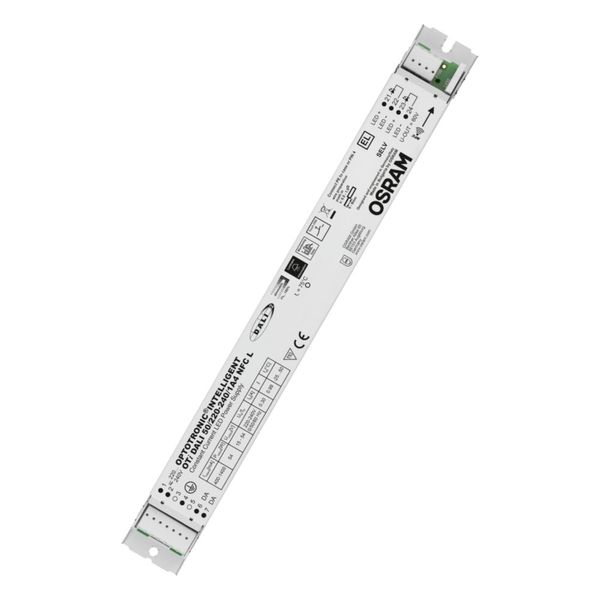Catalog
Cables and wires
Conventional Lamps
Electrical Installation
Show All
Alarm and security systems
Automation & Control Devices
CEE Plugs, Sockets and Combinations
Cable Management
Data and telecommunication
Door and Gate Hardware
E-mobility
Electric box (breaker panel)
Junction Boxes
Lighting protection
Mounting materials
Power supply elements and devices, reactive power compensation
Related Installation Materials
Switch Disconnectors
Tools, measuring instruments and protection
Off-load Switches
Heating, Cooling & Ventilation (HVAC)
Show All
Accessories (ventilators, pumps and gate operators)
Air freshener
Boilers and heaters
Cooling systems
Fans
Filters/separators
Heating appliances
Industrial fans
Trace heating cables and electric surface heating
Ventilation Ducting & Components
Air Curtains
Air Grilles & Diffusers
Pump Systems & Units
Industrial Automation
LED lamps and tubes
Lighting accessories
Luminaires
Show All
Emergency luminaires and accessories
Explosion proof luminaires
Flashlights, batteries and acessories
Industrial lights
LED Panels and accessories
LED strips, modules, profiles and accessories
Linear and modular luminaires
Street and park luminaires
Track lights and accessories
Built-in mounting lamps
Ceiling mounting lamps
Festive lightings
Floor lamps
In-ground luminaires
Machine and work bench luminaire
Pendant lights
Recessed lights
Surface mounting lamps
Table lamps
Wall mounting lamps
Renewable Energy
Switches and sockets
Register to unlock your exclusive B2B prices and start shopping. Sign up now!
- Home /
- Lighting accessories /
- Lighting transformers, ballasts /
- LED drivers /
- OTI DALI 50/220-240/1A4 NFC L
- Home /
- OSRAM +
- Lighting accessories /
- OSRAM Lighting accessories +
- Lighting transformers, ballasts /
- OSRAM Lighting transformers, ballasts +
- LED drivers /
- OTI DALI 50/220-240/1A4 NFC L

OTI DALI 50/220-240/1A4 NFC L
Order only
Discontinued
Price (excl. VAT):
28,39 €
Split box: 10,00 €
EAN: 4062172074988
MPN: 4062172074988
Package: 1
Box: 20
Estimate delivery time to our warehouse (approx.):
2-4 weeks
Technical Information
| Item condition | New |
| Manufacture name | OTI DALI 50/220-240/1A4 NFC L |
| Brand | OSRAM |
| Categories |
LED drivers
|
| Country of origin* | CN |
| * The actual country of origin may differ depending on the delivery batch. To confirm the specific country of origin, please contact your account manager. | |
Packing details
| Packing level 1 | 4062172074988 |
| Packing level 2 | 4062172074988 |
Description
This is a DALI-controllable LED driver, it's used for constant-current control in lighting systems. Designed for outputs up to 50W, interacts with 220-240V mains input. Supports NFC programming so you can adjust settings without direct wiring. Input voltage range: 220-240V AC. Nominal output current: adjustable up to 1.4A via NFC protocols (within set ranges). Operating frequency for the input at standard grid rates — 50/60 Hz AC confirmed on specs sheet. Outer shell build is compact, plastic housing but durable enough for general installations like recessed lights or linear setups—dimensions compact enough for tight spaces but double-check fitting before installation if your designs are unconventional. Weight noted as low impact on mountings. Temp limit in operation: -20°C to +45°C ambient environment spec (higher temp zones trigger potential derating?). IP classification not found; assumed indoor use only unless shielded integration provided externally by the installer. Technical notes: Class II protection against electric shock guaranteed. Designed specifically for DALI protocol compatibility. Max efficiency rating close to ~90% under full load conditions. Color-coded cable terminals on both sides pre-standardized configuration. DC operating voltage range between approx ~28 and ~54 volts depending per chosen setup target output current levels. Comes equipped with short-circuit protection modes auto-reset capabilities tested during lifecycle simulations of the component-built phase end final approvals documented from lab-based standards
Alternative EAN
28,39 €
Subtotal: 567,80 €
MOQ: 20
Split box: 6,00 €
EAN: 6977078993401
MPN: 6977078993401
Package: 1
Box: 20

